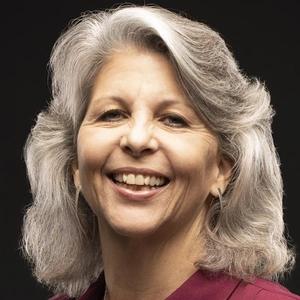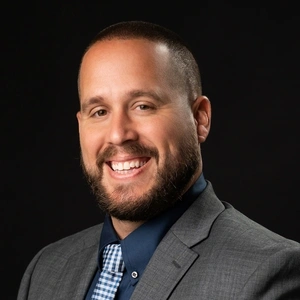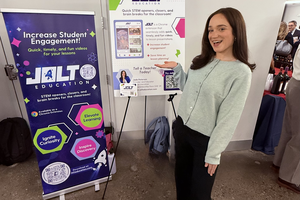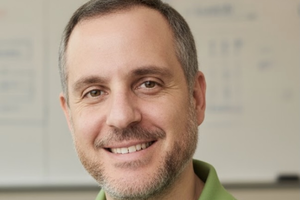Faculty Expert
During a transitional time of various uncertainties, in what ways can institutions provide adequate support for students’ mental health needs? How can educators respond to normal emotions such as fear and anxiety in healthy and meaningful ways? Penn GSE’s 2021 Homecoming event was held virtually on Saturday, November 6, and it highlighted some of the challenges and opportunities surrounding student mental health for an audience of alumni and friends.
Penn GSE Dean Pam Grossman moderated a timely discussion featuring three mental health professionals. The panelists included Dr. Batsirai Bvunzawabaya, director of Integrated Care Initiatives at the University’s Student Counseling Center; Dr. Caroline Watts, senior lecturer in the Human Development and Quantitative Methods division and director of school and community engagement at Penn GSE; and Dr. Kyle Schultz, lecturer in educational practice and director of the Counseling and Mental Health Services program at Penn GSE.
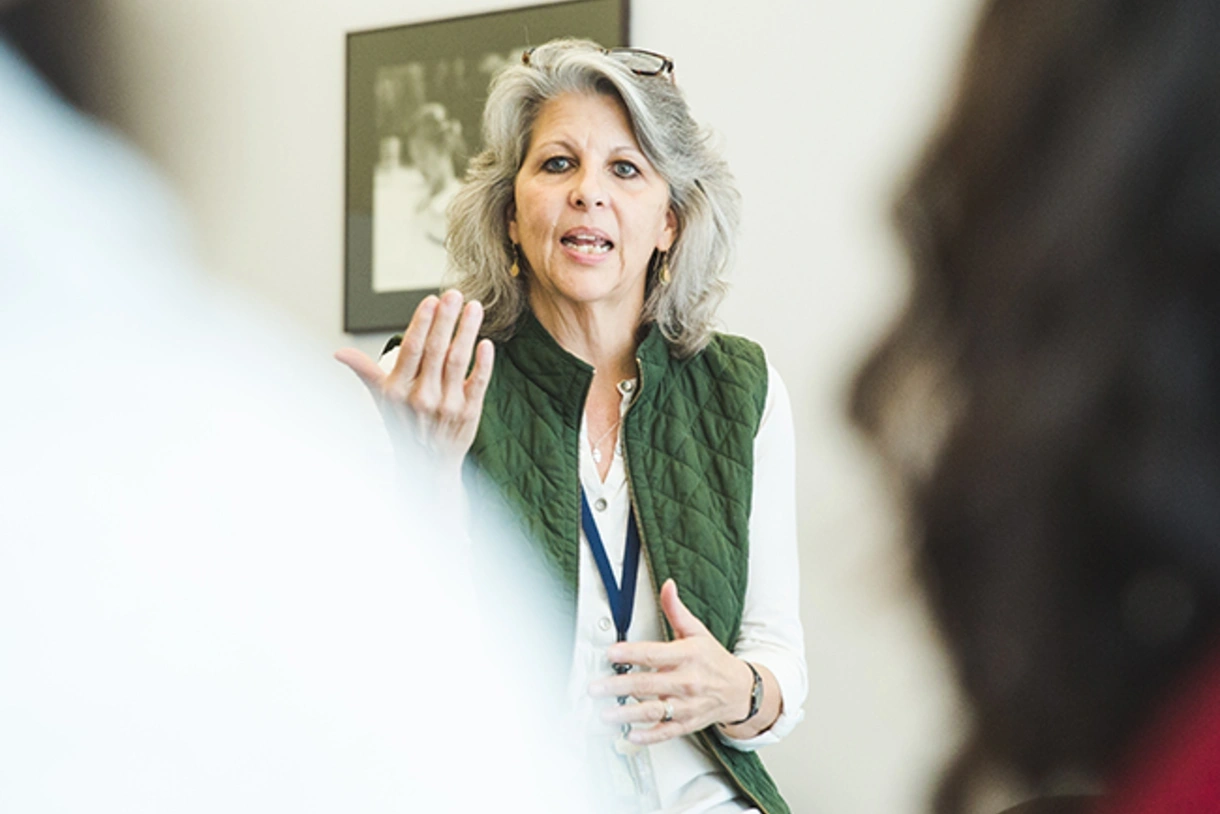
Having worked with various populations over the course of their careers, the panelists have one group in common that they interact with on a regular basis — students. Navigating various global and personal transitions has been a lot to balance for students, according to Bvunzawabaya, who works in direct contact with the University’s student population, faculty, and staff in addressing mental health concerns.
“A theme that I’ve noticed with many of my students is really thinking about how to prioritize their academics with everything else that is going on around them. In a very powerful way, we saw how physical health concerns impact mental health and how we really can’t separate the two,” she said.
Schultz, a practicing clinical psychologist, works closely with beginning counseling students, whom he sees as students in the program but also as counselors who are working with clients through the program’s fieldwork placements.
“The past year facilitated a closer relationship with students,” Schultz said, explaining that he witnessed how challenging the pandemic was for students who were starting their professional journeys by practicing and learning online. “One of my biggest roles as a teacher in the program is helping soothe anxieties students have about their professional journeys,” he said.
A blurring of boundaries between school and personal life has raised concerns about students’ lives.
“The virtual learning environment has given us a window into K–12 students’ lives as well as graduate students’ lives,” said Watts, who works closely with graduate students pursuing advanced training to become mental health practitioners in Penn GSE’s Professional Counseling program and oversees Penn GSE’s partnership with The School District of Philadelphia as director of school and community engagement. “One of the biggest concerns of the pandemic for our most vulnerable children and youth is not knowing if children are facing abuse or neglect, [if] they aren’t coming to school, [aren’t] turning on cameras.”
Another significant challenge for students, Bwunzawabaya said, has been deciding how to advocate and confront racial inequities while taking care of themselves and their communities.
“I think students are really struggling to think about how do they feel seen, how do they feel heard, how do they feel like they’re contributing,” she said, observing that involvement in activism can have a significant impact on the community, yet can also be mentally taxing.
The panelists have helped students respond to the challenging environment in a variety of ways. “Tolerate the ambiguity,” is what Watts practices herself, and asks of her students who find themselves in a state of perpetual ambiguity and uncertainty.
“What I say to my students, what I say to my kids, what I repeat to myself, is all I can control is my own behavior, and my own response to the things that are happening.”
Part of tolerating is also being okay with sitting with an emotion, Schultz emphasized, who helps his clients see that emotions can be useful information when they are deciding what to do about a situation, and that “even when the emotions are very intense, they do pass.” Bvunzawabaya agreed, adding that emotions such as fear and sadness are normal signs that our bodies are working in ways they were intended to.
“What’s important is that we acknowledge what we’re feeling and care for ourselves,” she said.
At Penn, it has been effective for faculty and staff to let someone know if a student is in distress and provide some level of flexibility when it comes to turning in assignments, according to Bvunzawabaya. In her role, she is an executive staff member at Student Counseling, which provides 24/7 services for Penn students through phone and walk-in services.
“I think one of the things that has been helpful [for] students is understanding that even if you are struggling in this moment, it doesn’t mean that that will always be the case. It’s okay to ask for help in the moment, get the help you need, and continue like you did in the past,” she said.

In K–12 settings, Watts said, it is particularly important to realize that students may be expressing their emotions through their behavior. As emotions communicate information, behavior certainly communicates information too, said Watts. When children express themselves through problematic behaviors, a punitive or controlling response from adults can take them into a chain of consequences while their internal experiences are overlooked.
“I want to acknowledge that it is a privilege for those of us in certain environments where there is space for us to feel, to get support, and to behave in ways we need to,” she said.
Watts, who spent many years practicing as a child psychologist, pointed out that another important part of supporting students is providing support for the adults who serve them.
“The last two years have placed strains and stresses on relationships at all levels,” she said, noting the context of increased stresses about the pandemic, racial inequities, and gun violence. “We need to be concerned about the stress, anxiety, and depression that adults are facing at the same time that they are trying to help their children manage stress, and anxiety, and depression.”
The three panelists are hopeful that conversations sparked by the pandemic are leading to meaningful changes in mental health services. They continue to be encouraged by the ways in which virtual services make it easier for students to seek and receive help. They also see hope in the healthy growth and resilience that can come from facing challenges.
“Flexibility is adaptability,” said Watts. “We’ve seen that we can manage a whole host of things that we didn’t think we could, particularly if we work together.”
Dean Grossman thanked the panelists and participants. She also shared some of School’s most recent updates, including the six-week summer program for over two hundred first to eighth graders enrolled in West and Southwest Philadelphia schools, Catalyst @ Penn GSE’s annual Milken-Penn GSE Education Plan competition, the Harold W. McGraw Jr. Prize in Education, and the successful conclusion of the School’s largest fundraising effort, the Extraordinary Impact Campaign. The campaign raised support for priorities across the School, including a building expansion scheduled for breaking ground in the spring.
“By this time next year, we’ll be well underway for construction,” she said.
Media Inquiries
Penn GSE Communications is here to help reporters connect with the education experts they need.
